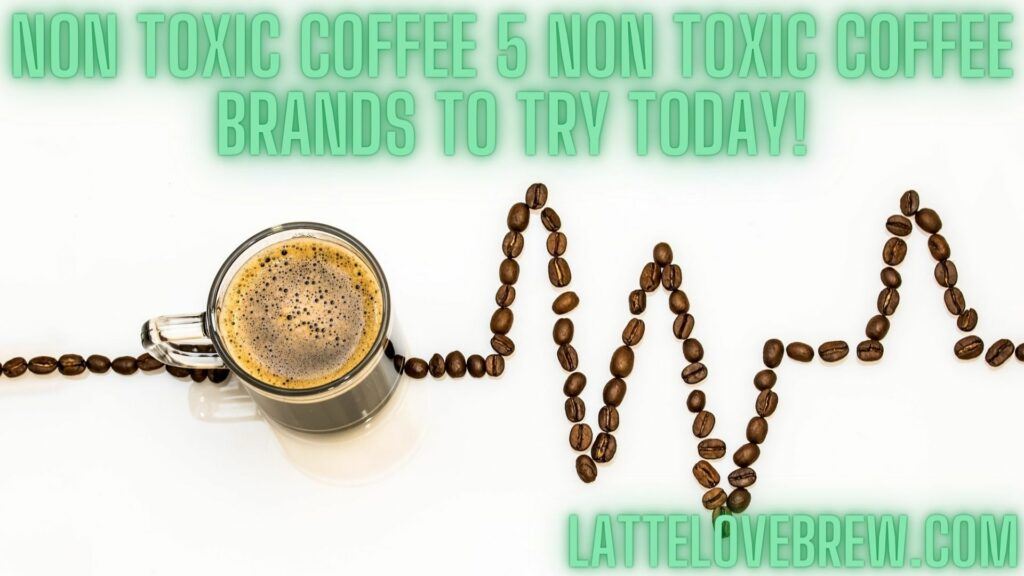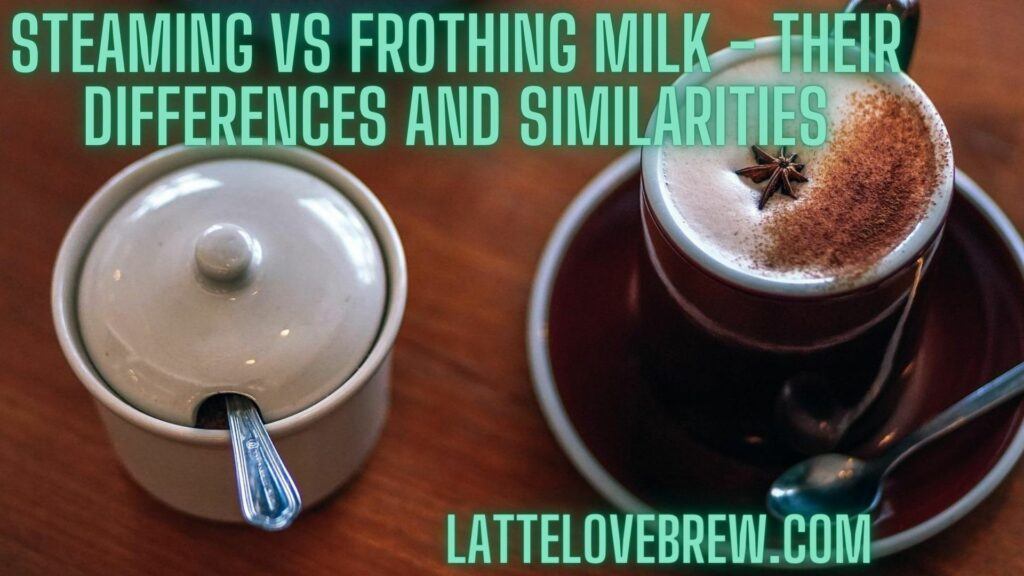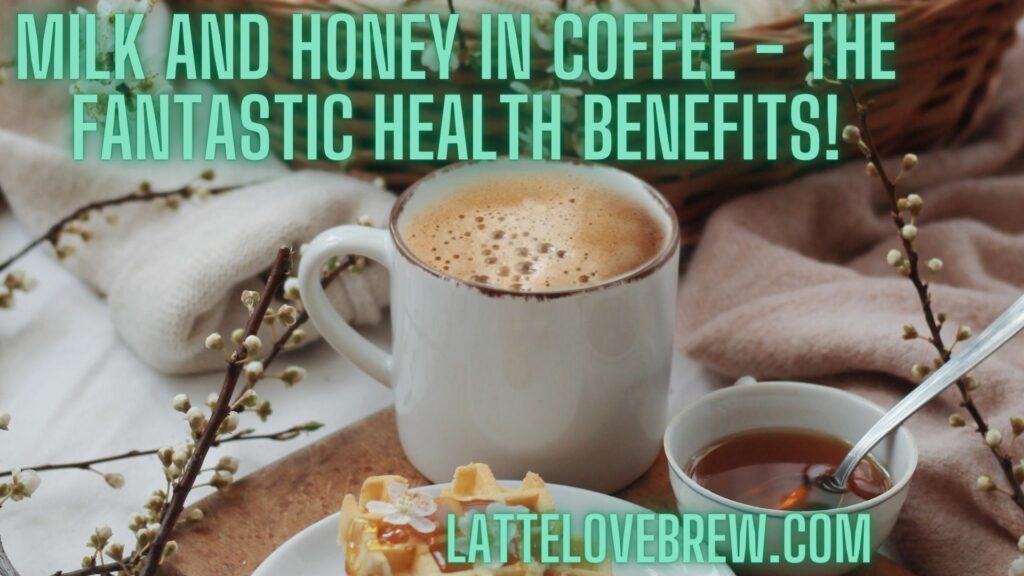Last updated on January 22nd, 2024 at 13:12
Toxins are literally everywhere. Sadly, this day and age it is so difficult to avoid them from the air we breathe, the water we drink, the food we eat and, yes, the coffee we drink. This article is about the toxins in coffee and non toxic coffee.
When you have finished reading this article, you will know all about the toxins in coffee, the effect they have and a good idea of non-toxic brands to try.
Pull up a chair and let’s get some good coffee in you!
Toxins In Coffee
Table Of Contents
Unfortunately, from one coffee drinker to another, there are toxins in your coffee. Be it a decaffeinated coffee, a tasty, high quality coffee there are some toxins that you should be aware of.
Let’s talk about those.

Read: How to make coffee with whole beans
Mycotoxins In Coffee
There are tiny amounts of toxins and molds that can be found in some coffee beans, including Mycotoxins, Alfatoxins, Ochratoxin A, Methyl Parathyion, to name only a few.
They can be found in both roasted and unroasted coffee beans as well as green coffee beans.
Mycotoxins are a tiny fungi that grows on grain crops and coffee beans if and when they are not properly stored. I highly, and persistently encourage the correct and proper storage of your coffee beans.
Always store your coffee beans in a proper coffee canister that is airtight, blocks out strong light and has a one-way valve. Then keep that canister in your fridge. Properly stored coffee beans results in better quality coffee and reduced the possibility of fungi like Mycotoxins from growing.
Mycotoxins can lead to poisoning when you have too much of it in your system.
There are different types of mycotoxins with the main ones associated with coffee crops are ochratoxin A and aflatoxin B1.

Ochratoxin A In Coffee
This is a relatively low number of studies for ochratoxin A in coffee in comparison to aflatoxin B1. It is said in the medical journals and websites I checked out like Web MD and Healthline to be a weak carcinogen and is potentially harmful to your kidneys and brain.
Aflatoxin B1 In Coffee
This is a known carcinogen that has been proven to have harmful effects. In fact, it’s a very powerful carcinogen. It is the dominant mycotoxin found in coffee beans.
Thankfully,
the processing and roasting of raw green coffee beans into a ready-made cup of coffee has proven to show a meaningful destruction of this toxic compound from 97% to 100% depending on the extraction method and preparation of your cup of coffee.
Despite it being a powerful carcinogenic, there is little to worry about for avid coffee drinkers.
Mycotoxins get neutralized by your liver and will not accumulate in your body. The great news here is more than half the world, 100+ countries, regulate the amount and others have very strict standards regarding this toxin.

Methyl Parathyion
The WHO declares this as highly toxic. It is a compound that is described as one of the most vile pesticides created by mankind. It is literally toxic to all living things, including humans.
It is an irritant to the eyes, skin and causes vomiting, diarrhea, headaches, irregular heartbeat, runny nose, blurry vision. It is an acetylcholinesterase inhibitor.
These can unfortunately show up in your coffee in small amounts. However, it is not the only pesticide used. Endosulphan and Chlorpyrifos are two others. Unfortunately, they are also toxic, with the former prohibited in the USA for domestic household use due to its association with birth defects. The former is safer but is still toxic to animals and doesn’t break down so readily in the soil.

Acrylamide In Coffee
This is a byproduct of coffee roasting. This means that all coffee has acrylamide in it to some degree.
Acrylamide is something that is also found in a range of baked and cooked foods and drinking water. It is said to be a carcinogenic. Despite the concerns, coffee does have anti-cancer benefits and health benefits for heart health and other areas of health.
According to the medical news today website drinking coffee in moderation presents no danger.
Although there are concerns that acrylamide may be carcinogenic, most research suggests that coffee may actually protect against a number of different cancers and other conditions, and that drinking coffee in moderation is generally safe.
Acrylamide highlights a problem in the roasting process of coffee and the toxins involved in this process. While organic coffee beans will help you to eliminate the toxins from the agricultural and cultivation side, you will need to look for a roaster that doesn’t use harmful chemical solvents or any toxic chemicals during the roasting and cleaning process.
I travel a lot, quite intentionally along the coffee belt. In every country I frequent, it is incredibly difficult to find a roaster that either does not use flavoring agents to mask the taste of lower quality beans or toxic chemicals for cleaning.
It took me over a year to find a good roaster. I now roast my own beans. At Latte Love Brew, we encourage you to get in on the home roasting revolution. You end up with coffee that is the freshest possible as you have roasted it and can ensure you are always enjoying fresh coffee by roasting small batches frequently.
Obviously, you can ensure your beans are roasted in a natural organic manner and keep them free from chemicals by cleaning your equipment with apple cider vinegar, distilled white vinegar or Bicarbonate of Soda.

Mold In Coffee
This part is about mold in coffee. The principal mold that is found in both regular coffee and decaffeinated coffee are mycotoxins. Mold can be a result of poorly stored coffee beans and poorly maintained coffee equipment.
If you don’t keep your coffee machine, drip machines, pod coffee makers, home espresso machine or whatever type of machine you use to make your coffee, it is prone to mold growing in and on them.
The mold in your drip coffee makers should be easily seen but in pod coffee makers it is not so obvious. The mold can be in old coffee in the tubing and pipes inside the machine. You absolutely must clean them regularly with distilled white vinegar and bicarbonate of soda.
Generally, brewed coffee is safe from mold since it is brewed at a high temperature. It is those trace amounts that get stuck and remain in the tubing is where mold spores can grow.
What Happens If You Drink Mold In Coffee?
Drinking a little drop of coffee is not going to make you sick as your stomach acid will deal with the pathogens. Most people that have ingested coffee mold will not experience much more than an upset stomach, cramping of the stomach, diarrhea and a little nausea.
Can Mold In Coffee Make You Sick?
Yes, ingesting mold spores of any kind can make you a little sick and trigger allergies. Congestion, sneezing, and an upset stomach. It is important to note that hot water can kill most of the pathogens and prevent the mold from forming in coffee.
The problem with moldy coffee is usually due to poor storage and not cleaning your coffee maker frequently enough.
5 Non Toxic Coffee Brands To Try Today!
To reduce as much as you possibly can your exposure to toxins in coffee and start drinking non-toxic coffee, you will need to cast your eyes to organic coffee beans and organic coffee brands and cleanly non-toxic chemical free roasting process.
I also advise the use of organic cotton coffee filters and organic non-bleached paper filters, preferably organic too.
Peak Performance Organic Coffee
Peak Performance is a health supplement company that offers coffee that is toxin free and meets cGMP and FDA standards as well as NSF regulations. With every purchase they support a charity to provide supplements to undernourished and malnourished children.
The Details
Their coffee is 100% Arabica coffee beans and are single origin from the elevated altitudes of the Guatemala Highlands. Their coffee is pesticide free, GMO free and fair trade coffee certified.
Their delicious coffee is medium roasted and can be bought as either whole beans or ground.
What stands out about peak performance is that they test their beans for the absence of yeast, mold, heavy metals and many more impurities and toxins.
They are a high performance, well-respected, socially responsible brand that produces a high quality coffee that you can be assured is both healthy, toxin-free and tasty.

Bulletproof Original Coffee
Bulletproof is a well-known and well-respected company that has a wide range of science-based products. Bulletproof is long-established by Dave Asprey in 2004 and is a company that has a range of products to help their customers to achieve optimal health. Their entire product line is certified as clean and has a focus on biohacking.
Their Coffee Details
Their coffee is multi-origin and organically grown through their direct partnership with small independent coffee farms in Colombia and Guatemala. Their coffee is Rainforest Alliance certified.
Their roasting process is a wet processing method. Few, literally no details are known about the trade mark Bulletproof process as it is kept a secret under trademark rules. What is known is that it is a proprietary method to reduce toxins.
Natural Force Coffee
Natural Force is a nutrition company that focuses on health via good quality food-based nutrition. They also have a line of supplements dedicated to using healthy and clean ingredients that are packaged in eco-friendly non-toxic materials.
The Details
Their coffee is from sustainable coffee plantations and is single origin specialty grade. Their coffee beans are organically grown, hand-picked and 100% Arabica beans.
They are certified as keto-friendly, paleo, vegan and USDA-certified organic coffee.
Their beans are roasted carefully to enhance chlorogenic acid and minimize acrylamide. Their coffee has double the antioxidants than regular coffee and is tested for over a dozen different mycotoxins, yeast, mold, gluten and 150 different pesticides including glyphosate.
Their beans are kept at a temperature-controlled warehouse that is designed to eliminate both humidity and heat.

Isagenix
Isagenix is a multilevel marketing company in the health industry who offer a wide range of supplements for improving your health.
The Details
Their coffee beans are 100% Arabica coffee beans grown at a high altitude from multiple origins and are hand selected by licensed coffee graders. Their coffee has trace minerals, green tea extract and coconut oil, which might not make them ideal for coffee connoisseur type of person.
They are USDA certified as organic and fair trade certified.
Their beans are roasted to a medium roast in small batches and finished using a process to preserve flavor called cool grind technology.
They test for the mycotoxins ochratoxin and aflatoxin in their coffee beans.
Kicking Horse Coffee
This is one of Canada’s prime coffee companies and is known for making exceptional and great coffee and is dedicated to Fair Trade Coffee with an ethos of social responsibility.
The Coffee Details
Their coffee is single origin Arabic beans that are grown at a high altitude and blended in house with 95% of their beans being wet processed. They are certified as organic by both US and Canadian authorities.
There is not a lot known about their roasting process or practices other than they are dedicated to preventing mycotoxins and mold. Their African beans are wet processed and inspected for mold and are stored at al low humidity, which aids in the prevention of contaminants.
They test their beans regularly for harmful bacteria, yeast and mold using a 3rd party lab.
Frequently Asked Questions About Non Toxic Coffee
What Coffee Is Chemical Free?
The Natural Force organic clean coffee I mentioned above is chemical free. It is highly tested, organic and available in medium roast and dark roast. Fully lab-tested and easy on your stomach due to the low acidity. Their beans are certified as organic and use a non-chemical roasting process.
Does Starbucks Coffee Have Pesticides In It?
Starbucks’ coffee is not high in chemicals and pesticides. Ultimately, Starbucks has no control over the cultivation of the coffee beans as they do not own the farms that grow the beans, they may have some contractual obligations in place. Given their coffee is not organic they will have some pesticides.
What’s The Healthiest Way To Make Coffee?
According to studies by Harvard Medical and European Journal of Preventative Cardiology, found that filtered coffee with an organic filter, be it paper, cloth or metal, is the healthiest way of brewing a cup of coffee.
Simple unfiltered coffee made with hot water was found to be less healthy than filtered coffee.
What Is The Safest Coffee To Drink?
Black coffee is the healthiest coffee drink to enjoy as it has literally no calories, fats, carbohydrates and is low in sodium. It also has niacin, magnesium and potassium as well as being loaded with antioxidants and phenolic compounds.
If you want the healthiest non-toxic coffee, try a caffe Americano.
What Coffee Does Not Have Chemicals?
Organic coffee has no chemicals, no pesticides or chemical fertilizer used during its cultivation. Organic coffee is grown with compost, coffee pulp, chicken manure and other natural fertilizers.
Which Coffee Has The Least Amount Of Pesticides?
The coffee with the least amount of pesticides used is organic coffee. Shade-grown coffee does not have a lot of pesticides or fertilizers used during their production.
Frappé-Ing It All Up – Non Toxic Coffee
Unfortunately there are toxins in coffee.
The great news is the toxins can be avoided by storing your beans properly and cleaning your coffee equipment properly and regularly – I don’t mean a little wipe down and regular cleaning after you use them.
You can have further control over the aspect by either purchasing your own non-toxic coffee beans and seeking out non-toxic coffee brands.
A much better way is to buy your own unroasted organic beans and get in on the home roasting revolution and roasting your own coffee beans in a chemical free way, including the maintenance and cleaning of your own roasting equipment.
Join our active fun, informative coffee community on Facebook/Meta, share your thoughts about your own experiences with non-toxic coffee brands.







